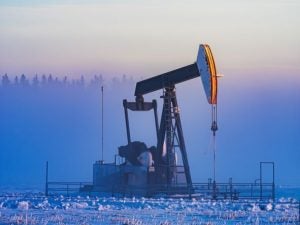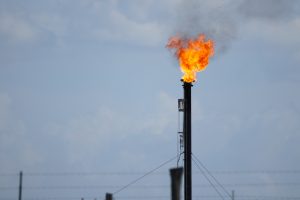 By Scott Seymour and Ari Pottens
By Scott Seymour and Ari Pottens
Canada has set arguably some of the most ambitious goals of any country when it comes to reducing emissions of the potent greenhouse gas methane. In addition to joining a global coalition of countries pledging to reduce 30% of their methane emissions, Canada has also vowed to reduce oil and gas sector emissions even further, by 75%.
But how close is Canada to reaching that goal? New research published this week in the journal Elementa reveals it is almost impossible to accurately answer that question with our current policies.
Here’s why.
Last year, Canada’s environmental regulators (Environment and Climate Change Canada) took steps to improve its calculations for estimating how much pollution different oil and gas facilities emit. Part of this change meant relying more on self-reported pollution data from oil and gas companies, and less on computer models — which have been known to systematically underestimate emissions.
At first blush, this seems like a positive step. But unfortunately this may have the unintended effect of widening the gap between what is reflected in official government inventories and what scientists find when they measure methane in the atmosphere. This is largely because companies are not accurately reporting their emissions.
Unreported pollution: What new research reveals about Canada’s methane problem Share on XFor example, earlier this year, EDF commissioned an aerial survey of oil and gas sites in Alberta to study emissions from flaring — the practice of burning away natural gas, usually from oil wells.
We were shocked to see a large number of flares at well sites where no flaring was reported. In fact, about 16% of flares could not be traced back to emissions records. If these flares don’t show up in the official register then their pollution won’t either. That makes it extremely difficult to say with much certainty whether we are meeting our methane targets.
This is just one of many ways in which Canada’s current framework for calculating methane pollution is not accurate. The formula Canada uses assumes that oil and gas companies are complying with federal and provincial reporting rules. But we know based on the government’s own reporting that 30% of operators submit incomplete emissions records according to the Alberta regulators.
So what does it mean for our climate goals when scientists find pollution that governments aren’t counting? It means we need to make two critical changes.
Better measurement-based data collection
Canada should use a national emissions inventory based on real, actual measurements as opposed to computer calculations and incomplete industry reporting. Industry-reported emissions can be an invaluable tool, but only if they are accurate. Companies should be required to regularly measure their emissions and regulators should then validate these reports and ensure its inventories are based on transparent measurement data.
It’s clear that ECCC needs to re-evaluate its process for tracking emissions in order to know whether it’s truly meeting their 2025 goals. It simply leaves too much room for guess work and is not effectively accounting for its methane footprint.
Stronger emissions standards and enforcement
To meet Canada’s ambitious 75% emission reduction goal, we’ll need to not only improve the national emissions inventory, but we will also need to strengthen and enforce the existing standards for controlling methane.
- Venting should be banned and routine flaring should be eliminated.
- Equipment should be checked more regularly for leaks and malfunctions.
- Companies need to be held accountable for their pollution through stronger enforcement.
- Companies need to replace high-emitting pneumatic pumps with cleaner, more affordable alternatives.
Correctly assessing and controlling methane matters. Methane pollution accounts for over a quarter of global warming we are experiencing today, but reducing emissions — especially from the oil and gas industry — is one of the fastest, cheapest, most impactful things we can do to address climate change and protect future generations.
Canada is right to send a signal to the world that methane reductions are an important piece of the climate change puzzle. But it mustn’t also send the false message that Canada’s current policies are adequately addressing the problem. World leaders from across the globe will soon be gathering at the COP27 climate conference to tackle climate change, and for large oil and gas-producing countries, it’s absolutely essential that those plans include a better system for monitoring, reporting and verifying emissions than what current policies in Canada call for.










